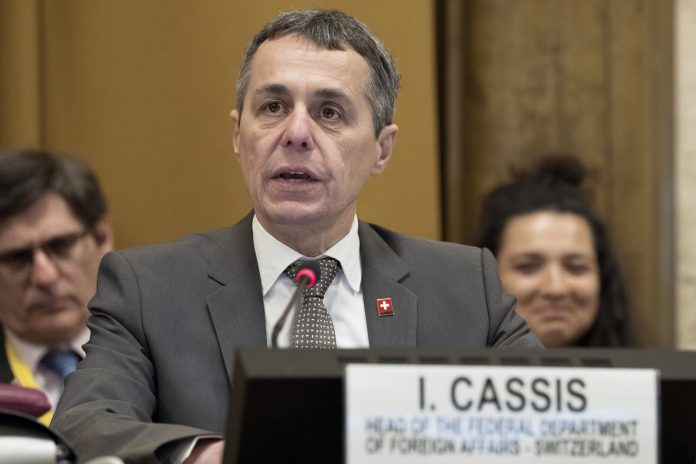The European Commission confirmed on July 4 that negotiations on a new European Union treaty with Switzerland remain “difficult”. And Switzerland said it had put further talks on hold until after the summer break.
“We take not of today’s discussions. We are not negotiating via the media. Negotiations will continue next week and they will remain difficult,” the spokeswoman said in an emailed statement.
As reported by the Reuters news agency, negotiations to formalise ties now covered by around 100 separate accords have stumbled in recent weeks with Swiss leaders conceding that Britain’s planned exit from the EU has made it more difficult to clinch a deal.
Talks have snagged in particular on Switzerland’s wish to protect its own labour market and the pay and conditions for Swiss-based workers, with Switzerland’s Foreign Minister Ignazio Cassis describing this as a “red line” not up for negotiation.
Brussels has said Switzerland must agree a full treaty before it gets greater access to EU markets.
According to the Swiss government, progress has been made towards resolving several points of contention, particularly on the solution of legal disputes through arbitration panels.
“By and large, we’ve come a step closer, but we’re not yet at the finish,” Cassis told a press conference on July 4. “Nothing is agreed until everything is agreed; it’s an everything or nothing process.”
In a separate report, The Local noted that 125,000 signatures have been collected in Switzerland for the anti-freedom of movement initiative. The president of the far-right Swiss People’s Party (SVP) confirmed on July 4 that these are enough signatures to force a referendum on the issue of the right of EU citizens to live and work in Switzerland.
If the SVP referendum does go ahead and receives the backing of the Swiss people, it would mean EU citizens would no longer have the automatic right to work in Switzerland.
Rösti said freedom of movement “is damaging to prosperity [in Switzerland] in the long run” and denied that scrapping the freedom of movement deal with the EU would cause major damage to relations with Brussels.

